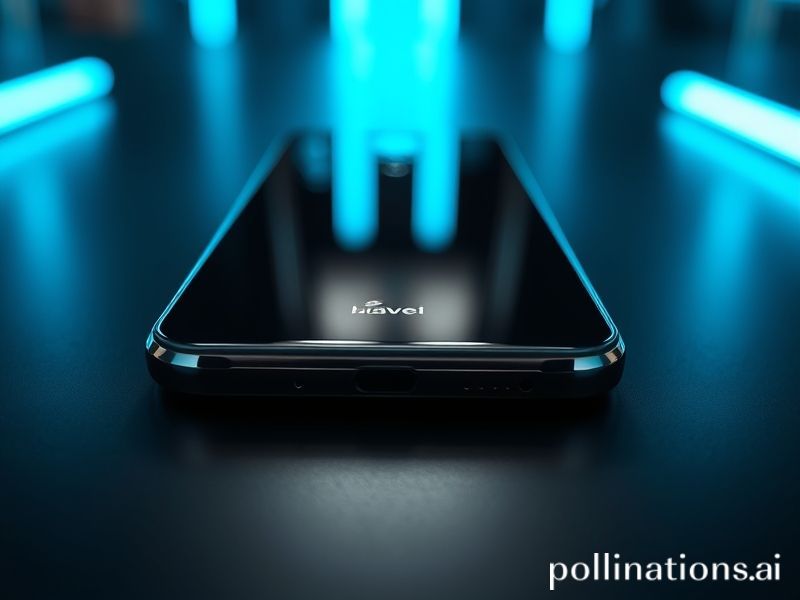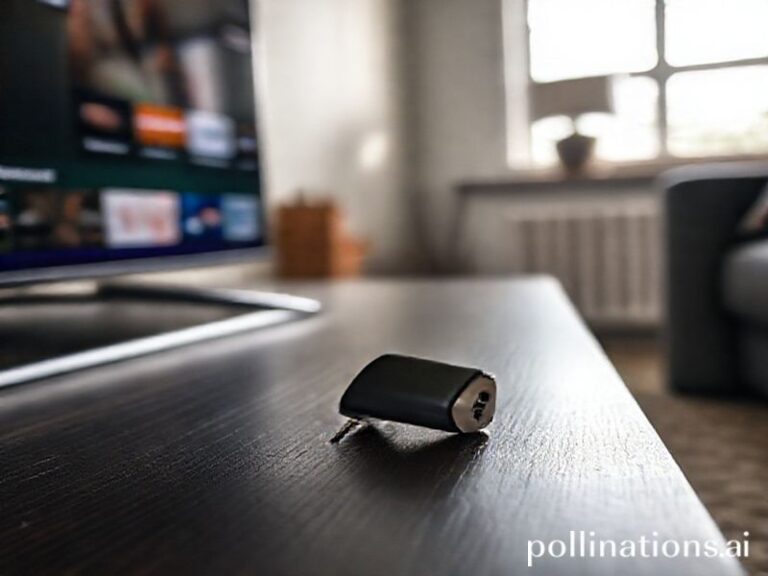Huawei’s Global Tightrope: How a Banned Tech Giant Still Runs the World’s Internet While We Pretend Otherwise
Huawei and the Art of Global Schadenfreude
By A. Correspondent, filing from an airport lounge that still smells like 2019 hand sanitizer
Somewhere over the South China Sea, a Huawei P60 silently pings a cell tower that isn’t supposed to be talking to it. The tower, built by the same company that made the phone, politely answers back, reminding us that in 2024 the most durable relationships are no longer marriages or trade alliances, but firmware handshakes engineered in Shenzhen. Across the planet, politicians who still struggle to set up a Zoom background continue to lose sleep over what this Chinese firm might be doing with 1s and 0s. Spoiler: the 1s are winning.
The story begins, like all good tragedies, with hubris. A decade ago Huawei was the anonymous white-label workhorse inside Europe’s 4G networks—cheap, efficient, and as glamorous as a tax accountant. Then came 5G, and overnight the accountant grew fangs. Washington decided that letting Huawei build the nervous system of tomorrow was equivalent to handing Xi Jinping the master key to every Netflix queue on the planet. Ban lists, chip embargoes, and theatrical airport arrests followed. The global moral appeared simple: don’t source your critical infrastructure from geopolitical rivals. The subtext was simpler still: only America is allowed to spy on the Free World, thank you very much.
Europe, ever the well-mannered hostage, tried to split the difference: “We’ll let Huawei in, but only the boring bits.” The result is a continent whose 5G rollout now moves at the speed of Belgian bureaucracy, and where base stations arrive with stickers that say “No Spyware, Honest.” Meanwhile, Germany’s digital ministry still uses fax machines, proving that irony, not 5G, is the truly universal standard.
Yet Huawei refuses to perform the corporate death scene that was scripted for it. Cut off from TSMC’s cutting-edge chips, it printed “7 nanometer” on silicon fabricated in China by a company that six years ago was making LED garden lights. The Mate 60 Pro appeared last autumn like a middle finger wrapped in vegan leather. Benchmark nerds ran stress tests; the phone ran Genshin Impact and, presumably, whatever the Ministry of State Security ordered for dessert. The West’s response was a synchronized gasp followed by a frantic googling of “how to ban something already banned.”
In Africa and Latin America, Huawei is simply the internet. From Nairobi’s traffic cameras to Rio’s favela Wi-Fi, the red flower logo blooms where Silicon Valley fears to bill. The price is right, the delivery trucks arrive on time, and no one asks awkward questions about genocide clauses in the procurement contract. Moral consistency, after all, is a luxury good—like iPhones, but less attainable.
Japan and South Korea watch from the sidelines, politely horrified. Samsung would love to feast on Huawei’s carcass, yet finds itself stuck between its biggest customer (China) and its security guarantor (Uncle Sam). The result is corporate schizophrenia: one press release celebrates new foundry partnerships in Xi’an, the next donates a missile-warning radar to California. East Asia has become a giant Tinder date where everyone brings their own chaperone.
What does it all mean? First, that technological decoupling is like a vegan divorce: messy, expensive, and both sides still secretly use the same Nespresso pods. Second, that the global supply chain is less a chain than a tangled Slinky tumbling down an escalator—no one knows where it ends, but it’s fun to watch. Finally, that Huawei has inadvertently become the world’s most honest mirror: we accuse it of whatever we’re most ashamed of doing ourselves, then act surprised when the reflection blinks back.
As this correspondent boards the red-eye to Frankfurt, the lounge Wi-Fi helpfully provided by—you guessed it—Huawei flickers once and stabilizes. Somewhere in the metadata, packets are being counted, not because the company is evil, but because that is literally how routers work. The real scandal isn’t espionage; it’s how eagerly we volunteered to carry the trackers in our pockets, then demanded someone else to blame. Humanity: 0. Firmware: 1. Game set, match.







